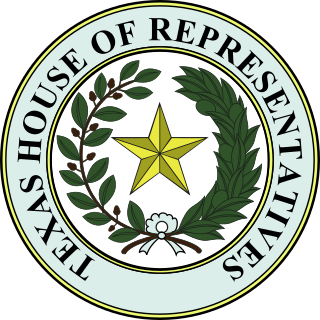Related Research Articles
Father of the House is a title that has been traditionally bestowed, unofficially, on certain members of some legislatures, most notably the House of Commons in the United Kingdom. In some legislatures the title refers to the longest continuously-serving member, while in others it refers to the oldest member. Recently, the title Mother of the House or Mother of Parliament has also been used, although the usage varies between countries; it is either the female alternative to Father of the House, being applied when the relevant member is a woman, or refers to the oldest or longest-serving woman without reference to male members.
Dean may refer to:
A question time in a parliament occurs when members of the parliament ask questions of government ministers, which they are obliged to answer. It usually occurs daily while parliament is sitting, though it can be cancelled in exceptional circumstances. Question time originated in the Westminster system of the United Kingdom, and occurs in other countries, mostly Commonwealth countries, who use the system.
A member of parliament (MP) is the representative in parliament of the people who live in their electoral district. In many countries with bicameral parliaments, this term refers only to members of the lower house since upper house members often have a different title. The terms congressman/congresswoman or deputy are equivalent terms used in other jurisdictions. The term parliamentarian is also sometimes used for members of parliament, but this may also be used to refer to unelected government officials with specific roles in a parliament and other expert advisers on parliamentary procedure such as the Senate Parliamentarian in the United States. The term is also used to the characteristic of performing the duties of a member of a legislature, for example: "The two party leaders often disagreed on issues, but both were excellent parliamentarians and cooperated to get many good things done."

In political science, an initiative is a means by which a petition signed by a certain number of registered voters can force a government to choose either to enact a law or hold a public vote in the legislature in what is called indirect initiative, or under direct initiative, where the proposition is put to a plebiscite or referendum, in what is called a Popular initiated Referendum or citizen-initiated referendum.
A Member of Congress (MOC) is a person who has been appointed or elected and inducted into an official body called a congress, typically to represent a particular constituency in a legislature. The term member of parliament (MP) is an equivalent term in other, unaffiliated jurisdictions.

A speech from the throne, or throne speech, is an event in certain monarchies in which the reigning sovereign, or a representative thereof, reads a prepared speech to members of the nation's legislature when a session is opened, outlining the government's agenda and focus for the forthcoming session, or in some cases closed. When a session is opened, the address sets forth the government's priorities with respect to its legislative agenda, for which the cooperation of the legislature is sought. The speech is often accompanied with formal ceremony and is often held annually, although in some places it may occur more or less frequently, whenever a new session of the legislature is opened.
A whip is an official of a political party whose task is to ensure party discipline in a legislature. This means ensuring that members of the party vote according to the party platform, rather than according to their own individual ideology or the will of their donors or constituents. Whips are the party's "enforcers". They try to ensure that their fellow political party legislators attend voting sessions and vote according to their party's official policy. Members who vote against party policy may "lose the whip", being effectively expelled from the party.
The chamber of deputies is the lower house in many bicameral legislatures and the sole house in some unicameral legislatures.

The speaker of a deliberative assembly, especially a legislative body, is its presiding officer, or the chair. The title was first used in 1377 in England.

The Texas House of Representatives is the lower house of the bicameral Texas Legislature. It consists of 150 members who are elected from single-member districts for two-year terms. As of the 2010 United States census, each member represents about 167,637 people. There are no term limits. The House meets at the State Capitol in Austin.

The dean of the United States House of Representatives is the longest continuously serving member of the House. The current dean is Hal Rogers, a Republican Party U.S. Representative from Kentucky, who has served in the House since 1981. The dean is a symbolic post whose only customary duty is to swear in a speaker of the House after they are elected. This responsibility was first recorded in 1819 but has not been observed continuously – at times, the speaker-elect was the current dean or the speaker-elect preferred to be sworn in by a member of his own party when the dean belonged to another party. The dean comes forward on the House Floor to administer the oath to the speaker-elect, before the new speaker then administers the oath to the other members.
A legislator is a person who writes and passes laws, especially someone who is a member of a legislature. Legislators are often elected by the people of the state. Legislatures may be supra-national, national, or local.
Parliaments and legislative bodies around the world impose certain rules and standards during debates. Tradition has evolved that there are words or phrases that are deemed inappropriate for use in the legislature whilst it is in session. In a Westminster system, this is called unparliamentary language and there are similar rules in other kinds of legislative systems. This includes, but is not limited to, the suggestion of dishonesty or the use of profanity. Most unacceptable is any insinuation that another member is dishonourable. So, for example, in the British House of Commons any direct reference to a member as lying is unacceptable. A conventional alternative, when necessary, is to complain of a "terminological inexactitude".
A reading of a bill is a stage of debate on the bill held by a general body of a legislature.
A state legislature is a legislative branch or body of a political subdivision in a federal system.
Redistribution is the process by which electoral districts are added, removed, or otherwise changed. Redistribution is a form of boundary delimitation that changes electoral district boundaries, usually in response to periodic census results. Redistribution is required by law or constitution at least every decade in most representative democracy systems that use first-past-the-post or similar electoral systems to prevent geographic malapportionment. The act of manipulation of electoral districts to favour a candidate or party is called gerrymandering.

Dáil Éireann is the lower house, and principal chamber, of the Oireachtas, which also includes the President of Ireland and Seanad Éireann. It consists of 160 members, each known as a Teachta Dála. TDs represent 39 constituencies and are directly elected for terms not exceeding five years, on the system of proportional representation by means of the single transferable vote (PR-STV). Its powers are similar to those of lower houses under many other bicameral parliamentary systems and it is by far the dominant branch of the Oireachtas. Subject to the limits imposed by the Constitution of Ireland, it has power to pass any law it wishes, and to nominate and remove the Taoiseach. Since 1922, it has met in Leinster House in Dublin.
House is a term commonly used to refer to a number of legislative bodies.
References
- ↑ U.C. Mandal, Dictionary Of Public Administration (2007), p. 123.